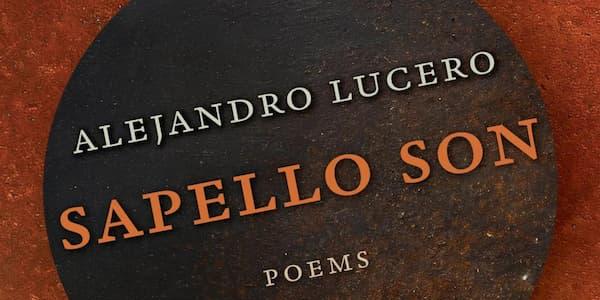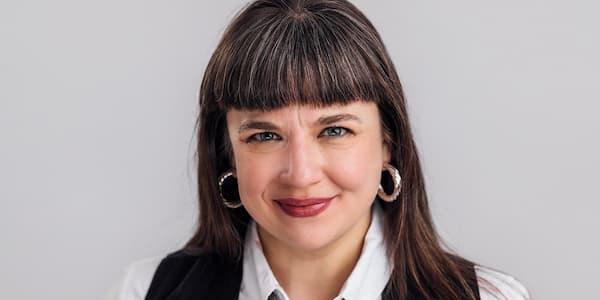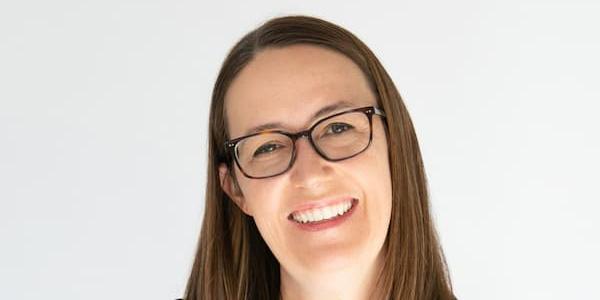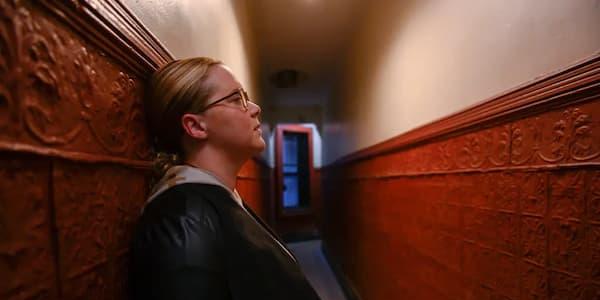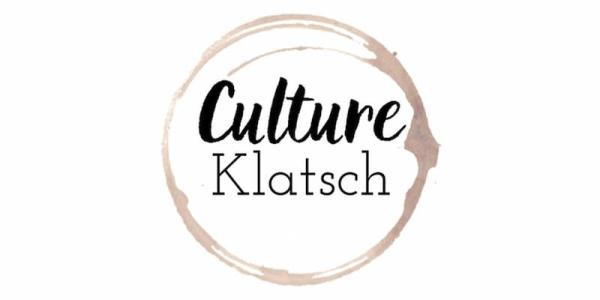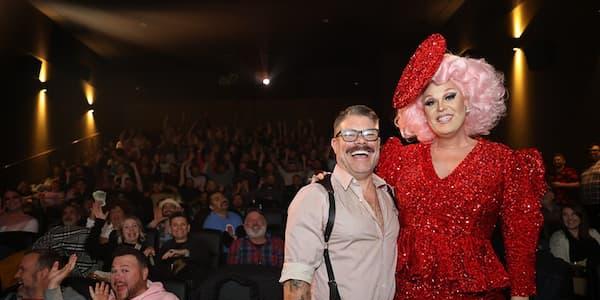Tell Your Story. Find Your Voice. Write Your Future.
Interested? Request more information
Credit hours: 120
Full-time, part-time
BA in English Writing, Rhetoric, and Technology is available on campus and fully online
BA in English is available on-campus with some online courses available
Start terms: fall, spring, summer
CU Denver’s English Department has four courses of study, three under English and one under English, Writing, Rhetoric, and Technology.
You can major or minor in the following:
*NOTE: If you enrolled in this program before the end of Spring 2025 you will be allowed to complete the Minor, as specified below. Beginning in Spring 2025, you should follow the requirements for the Minor in Literature and Film.
Add a Certificate to your degree
You also may enhance your degrees with a certificate. Courses may overlap with your major and minor requirements.
- Creative Nonfiction
- Proposal and Grant Writing
- Teaching English Language Learners (TESOL Certificate)
- Technical and Professional Writing
- Writing and Editing with AI
English and English Writing, Rhetoric and Technology (EWRT) Majors and Minors take workshops in
- Poetry Writing
- Fiction Writing
- Creative Nonfiction Writing
You will find classes such as
- “Greatest Hits” in Literature and Film
- Grammar, Rhetoric, and Style
- Digital Writing and Storytelling
- Podcasting; Magazine Writing
- Technical Writing
- Language Theory
- “From Literature into Film”
- Race and Ethnicity in American Literature
- Writing in the Sciences
- Technical Editing
- Argumentation and Logic
- Literary Editing
- The American Short Story
- Film Theory and Criticism
- Survey of Feminist Thought
- “Whores and Saints”
- Contemporary World Literature
- Poetics
- Teaching English Language Learners.
Outside of courses, you may work closely with faculty on a variety of research and creative projects. They can intern or volunteer to work on the nationally renowned literary journal Copper Nickel and can undertake a range of internships–in technical writing, grant writing, public and advocacy writing, literary publishing, teaching, and more.
And what about after graduation? According to the Wall Street Journal Report on Salaries by College Major, English majors’ mid-career salaries are in line with those of Biology, Geography, and Nursing majors and higher than those of Criminal Justice, Psychology, and Health Administration majors. Our alumni are writers, lawyers, content editors, podcast producers, marketers, grant writers, communications specialists, teachers, and professors.
Program Features
Creative Writing Reading Series
Every year, the creative writing program hosts the annual Jake Adam York Memorial Reading and invites several distinguished writers to campus to give a public reading and engage with students.
CU Denver’s Department of English offers you a multitude of ways to get involved and actively apply what you are learning to real-world scenarios. We offer more than just high-level courses and curriculum. Connect with your peers and teachers, hone your craft, engage in client-led learning projects, network with potential employers and partners, participate in writing-focused internships, and more.
Find Community in a Historic Location
The Department of English is located on the Historic Ninth Street Park of the Auraria Campus. As one of our majors, you will have exclusive access to the CU Denver English Student Lounge where our students can connect, study, and share your work.
Copper Nickel: A Literary Journal
Housed in the English Department at CU Denver and produced collaboratively by faculty and student editors, Copper Nickel is a national literary magazine that publishes about 0.5% of the submissions it receives from all over the world. Student editors participate in screening submissions, promotion, design, proofreading, subscription drives, management, etc.
Culture Klasch Podcast
CultureKlatsch is a student-led podcast housed in CU Denver’s English Department. It examines the narratives that are most relevant to the current cultural moment and extends conversations about contemporary and local culture by sharing nuanced, perceptive commentary on the stories and issues that matter most.
Careers
Alumni: Samantha McClain
After graduating with her degree in English, Writing, Rhetoric, & Technology (EWRT), Samantha McClain applied for several positions, and, though she had no prior direct experience in the field of grant writing, she had a strong background in writing and was offered her current job. She says, “Studying at CU Denver opened up a lot of opportunities and made me well rounded. By the time I graduated, I was well prepared to write my resume/CV and apply for jobs. Because of my education, I was a good fit for many different career paths and was offered multiple positions.”
—Samantha McClain, ’21,
Nonprofit Liaison & Grant Writer, Arula Consulting
Your job choices go beyond the obvious options of teaching, attending graduate school, or becoming a writer.
As an English major, you will learn to skillfully and eloquently present your ideas and opinions through writing, analyzing material, and communicating effectively. You will be ready for careers in fields where the sophisticated use of language is necessary for advancement. Your degree is useful in almost any field and will provide a strong foundation for a variety of career opportunities.
Writing careers include:
- Professional Writing and Editing
- Journalism
- Broadcasting
- Entertainment
- Sales and marketing
- Business
- Management
- Government
- Law
- Medicine
- Education and teaching
The English Department offers 2 majors:
BA in English and you will choose a concentration
- Creative Writing concentration
- Literature and Film concentration
- BA in English with the Secondary Teaching Licensure Endorsement
BA in English Writing, Rhetoric, and Technology
Majoring in English
Creative Writing concentration: 39 hours
The creative writing program allows you to master the ability to express your ideas through creative work. You will develop your ability to read literature responsibly and imaginatively, to foster an understanding and appreciation of our literary inheritance, and to provide the historical perspective from which to evaluate contemporary writing and to produce it. Learn more about concentrating in Creative Writing
Literature and Film concentration: 39 hours
The literature and film option allows you to master the ability to express your ideas clearly and persuasively. Develop your ability to read literature and view film critically, to foster an understanding and appreciation of our literary inheritance, and to provide the historical perspective from which to evaluate contemporary culture. Apply these skills and think critically about politics, the media, and the wider world. Learn more about concentrating in Literature and Film
The secondary licensure program is a partnership program between the College of Liberal Arts and Sciences (CLAS) and the School of Education & Human Development (SEHD). This program is nationally recognized for having one of the most innovative, collaborative teacher preparation models where top faculty work side by side with experienced K-12 partner educators to prepare you to have a profound impact on the lives of students in our most urban and diverse schools. Secondary Education Licensure students complete all CORE, CLAS, English, and initial teacher education admission requirements before completing a final professional year of licensure coursework through the SEHD. Learn more about majoring in English with the Secondary Teaching Licensure Endorsement
Majoring in English Writing, Rhetoric, and Technology: 36 hours
The English writing, rhetoric and technology program will prepare you to think critically, read carefully, solve problems creatively, and write with clarity, grace, and power. This degree can be completed fully online or fully on-campus. Learn more about majoring in English Writing, Rhetoric, and Technology
CU Denver Core: 34-40 Hours
You’ll be educated in:
- English and mathematics
- International and cultural diversity perspectives
- Arts and humanities
- Behavioral, physical, and social sciences
College of Liberal Arts and Science Core—15 Hours
These courses give you a better understanding of the issues and skills you need to succeed.
Topics include:
- Logic, Language, and Scientific Reasoning
- Psychology
- Writing for the Sciences
- Public Health
Certificates
Hone your writing skills and get a certificate while working on your degree.
Proposal and Grant Writing
Develop your writing skills and gain hands-on professional experience in writing and managing grants in this practical certificate program. Learn all stages of the grant development process, including prospecting funding opportunities, building relationships with funders, managing complex grant proposals and teams, writing and designing proposals, and managing grant funds, work plans, outcomes assessments, and relationships.
Learn about the Proposal and Grant Writing Certificate
Technical and Professional Writing
Become a technical writer with the ability to work across a range of fields, including business, health, nonprofits, technology, science, publishing, environment, and law. Learn to analyze audiences, visualize data, manage content, write reports, design user interfaces, compose web pages, and communicate science to the public. Gain hands-on experience with technical and professional writing projects, and get exclusive access to writing-focused internships, experiential learning courses, and networking events.
Learn about the Technical and Professional Writing Certificate
Teaching English Language Learners
Gain the skills necessary to teach English Language Learners at a variety of levels in multilingual public and private schools in America as well as overseas. Learn effective English language teaching techniques, the theoretical basis of English language instruction, and the linguistic structures of the English language. Get access to opportunities for internships at CU Denver’s ESL Academy, International College of Beijing (ICB) and other language schools.
Learn about the Teaching English Language Learners Certificate
Writing and Editing with AI
Artificial Intelligence (AI) is upending how we write and communicate—in our workplaces, at school, creatively, and interpersonally. Writing professionals across many fields are increasingly expected to know how to use AI in a rapidly changing environment. By completing this certificate, students develop the capacity to question what this influx of AI writing tools means for us as writers, readers, and humans, and they gain the foundational skills needed to write and edit alongside AI.
Double Majors
You may be interested in a double major. Common combinations include:
- CS+ Program (Computer Science + English Writing, Rhetoric, and Technology)
- Business
- Women's and Gender Studies
- Communication
English Minors
English majors or Non-Degree majors can add a minor to your degree by completing at least 15 hours of specified coursework. You will need to see your CLAS advisor to declare a minor.
English Writing, Rhetoric, and Technology Minor
Topics include:
- Introduction to Writing and Rhetoric
- Multimedia and Storytelling
- Language Study
- Advance Writing Experience
More about the English Writing, Rhetoric, and Technology Minor
Creative Writing Minor
Topics include:
- Introduction to Creative Writing
- Literature and Film
- Workshops in Poetry OR Fiction
More about the Creative Writing Minor
Literature Minor
Topics include:
- Introduction to Literature and Film
- And a course cluster
- Major Authors—Chaucer, Shakespeare, Milton, Austen, Cather, Nobel Authors
- Genre—Drama, Speculative Fiction, Short Story, Young Adult Fiction, American or British Novel, American or History of English Poetry, Literature to Film, Memoir
- Self and Social Identity—Harlem Renaissance, Feminist Thought, Women Writers, African American Literature
- The Modern World through Literature—20th Century Literature, Contemporary World Literature, Modernism, Modern Drama
- History through Literature—Medieval, Renaissance, Romantic, Victorian, American Literature
- Modes of Narrative—Storytelling, Poetics
More about the Literature Minor
English Film Studies Minor
Topics include:
- Introduction to Literature and Film
- Film History
- Global Cinema
- Film Theory and Criticism
Learning Outcomes
Reading and Analysis: Students read with attention to textual details. They identify models and strategies in other writers’ works and discipline-specific theories to use in their own expository, argumentative, and creative work. They demonstrate the ability to summarize accurately, explicate primary formal and thematic elements, and analyze key motifs and meanings in order to interpret and assess literary, rhetorical, and cinematic works persuasively and insightfully.
Critical Inquiry and Context: Students recognize texts as responses to historically, politically, and culturally specific contexts. They examine these contexts by looking for patterns in existing discourses, and they construct their own positions by locating them in relation to those in an ongoing conversation. Students can discuss the socio-historic contingencies that influence experiences, understandings, and evaluations of discourses in various genres. They develop the ability to reflect upon the contingency of their own perspectives and to recognize others’ in order to discern the cultural, political, and material conditions that influence experience.
Written Communication: Students write persuasively across a variety of genres and modes. In their written composition, students can identify and distinguish among disciplinary conventions, evaluate sources, and synthesize arguments using discipline-specific theories and methods. Students can modify the delivery of their ideas in ways appropriate for a given audience, and they can revise their work in response to audience reaction.
Content: Students demonstrate knowledge of major genres, major authors/auteurs, historical periods and movements, analytical or theoretical approaches to texts, and the elements of craft and form so as to understand written and visual forms of expression within the complex traditions from which they emerged and to which they respond. Students can discuss and write about these topics using discipline-specific theories and methods.
Tuition and Scholarships
Tuition
The cost of tuition is different for in-state and out-of-state students. See the link for the current table of rates.
Residents of Western Interstate Commission for Higher Education (WICHE) states may qualify for reduced tuition rates. The Western Undergraduate Exchange (WUE) program requires students to maintain current residency in WICHE state until degree completion.
Scholarships
Each year, CU Denver undergraduate students are awarded over $30 million in scholarships from institutional, local, state, and national sources. Learn more, and apply here.
Other opportunities
The department of English and other departments have paid positions (both in the work-study program and outside of it) which may include jobs as graders, teaching assistants, and learning assistants. Please expect to have to apply. Learn more here.
Admission Requirements
If you are an incoming freshman to CU Denver (in-state, out-of-state, and international applicants), you can apply through either the Common Application or the Milo Application. Transfer students will need to submit the Milo Application.
Incoming first-year students
CU Denver requires that students complete the Colorado Higher Education Admission Requirements (HEAR). You will not have to meet all Minimum Academic Preparation Standards (MAPS) for admission, but you will need to complete CU Denver coursework by graduation.
Transfer Students
We have strong connections with other four-year and community colleges. If you have completed more than 24 credits of transferable coursework, you will be evaluated for admission on the basis of your college GPA without regard to your high school performance. If you have fewer than 24 credits, you will be evaluated based on both your high school and college GPAs. For more information and to plan your transfer, see transfer admissions in the admissions office.
If you are in your first or second semester at one of the participating Colorado community colleges and plan to transfer to CU Denver after earning your associate degree, CU Denver Bridge to Bachelors might be a great program for you. To qualify, you must meet the criteria including meeting regularly with your assigned CU transfer advisor while you are attending community college.
International Students
You will need to begin your application through the Office of International Affairs. They will help you manage your application process.
Application deadlines
Spring
Domestic Application: January 1
International Applications: Priority is September 15, and Final is October 15
Summer
Domestic Applications: May 15
International Applications: Priority is January 15, and Final is March 15
Fall
Domestic Applications: August 1
International Applications: Priority is March 15, and Final is May 15
English in the News
English in the News
- Wayne Miller Honored for Transformative Impact on American Literature
- English Department Mourns Passing of Emeritus Professor Mary Rose Sullivan
- Professor Wayne Miller Publishes New Poetry Collection in the US and Selected Poems in Poland
- Sarah Hagelin Honored with 2025 CFDA Faculty Mentoring Award for Excellence in Mentorship
- Colleen Donnelly Named 2024–25 CU Denver Faculty Assembly Award Recipient
- Celebrating Student Success: 2025 Lit Fest Creative Writing Scholarship Winners
- The Forward Features Article by Dr. Philip Joseph
- "CU Denver Professor Andy Scahill's Rainbow Cult Is Off to See the Wizard" Writes Westword
- Upcoming Lecture with Dr. Davarian L. Baldwin—"Confronting Higher Education’s Legacy on and Displacement in Urban Communities"
- English Professor, Dr. Mahmoodi-Shahrebabaki, Publishes Article in Journal of Interdisciplinary Studies in Education
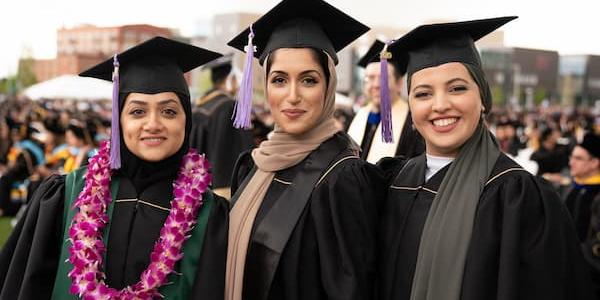
Making Education Work for All
At CU Denver, making education work for all means breaking down barriers so every learner can succeed. Through inclusive policies, programs, and partnerships, we’re building a culture where opportunity isn’t defined by identity but by ambition and impact. Learn more at our Office of Access and Campus Engagement (ACE)
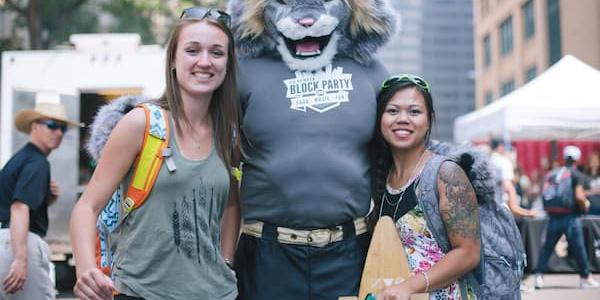
Find your people
Campus can feel like a huge place. We help you find your people by offering the experience of a more traditional, small liberal arts program—for a fraction of the cost. We offer a variety of clubs and networking opportunities.
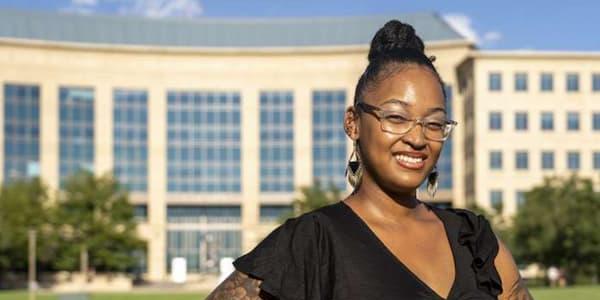
Ahja Fox, Poet Laureate of Aurora
Just one year after she graduated from CU Denver in the spring of 2021, Ahja Fox was appointed the Poet Laureate of Aurora, Colorado, a position that allows her to represent poetry in her home city, to create poetry-related programming, and to speak about poetry in schools and universities. She has also written two poetry manuscripts and gained experience as a literary editor and judge. She writes, “The University of Colorado Denver gave me the tools and knowledge necessary to do each of these jobs with authority and confidence. I’ve gained these successes much earlier in life than I initially thought possible.”
—Ahja Fox, ’21
Poet Laureate of Aurora, Colorado


